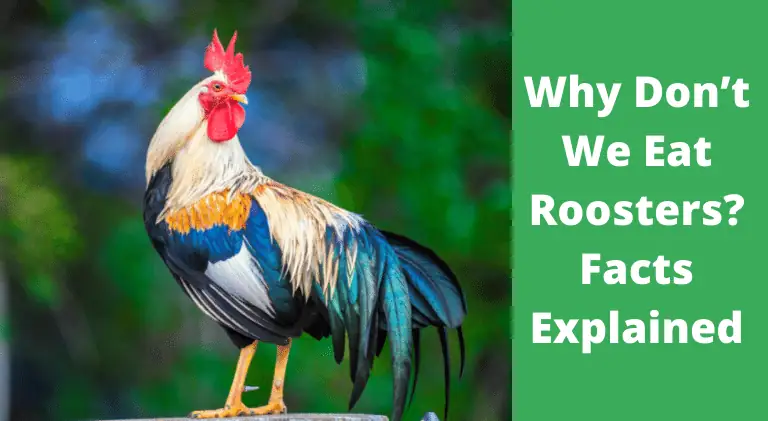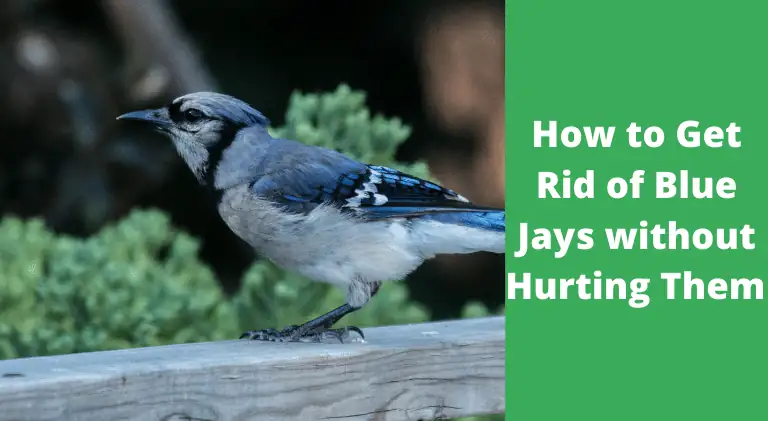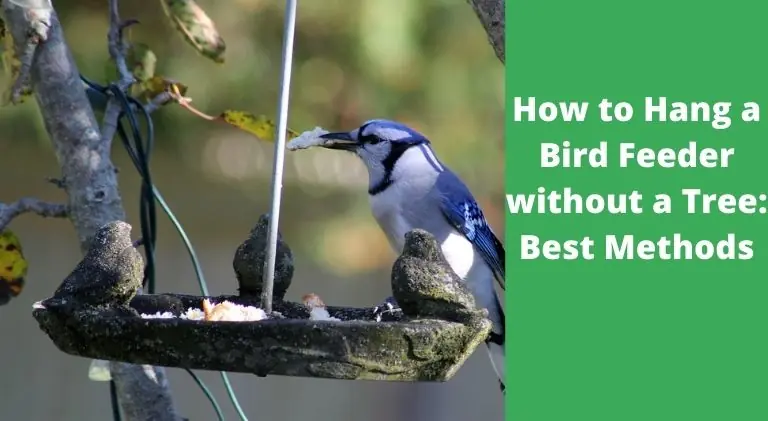Do Blue Jays Kill Squirrels? – Everything Explained
Blue jays are known for their striking blue plumage and bold personalities, but did you know that these birds may also be skilled hunters? One topic that has sparked controversy among bird watchers and animal lovers is the question of whether or not blue jays kill squirrels. So do blue jays kill squirrels?
“Yes, Blue jays are known to kill small animals including squirrels, but it’s not a common occurrence. Blue Jays primarily prey on insects, fruits, and seeds. This is often done as self-defense and to protect their eggs from the potential intruder”
While this may come as a surprise to some, it’s important to remember that all animals must hunt in order to survive.
However, the impact that blue jays may have on squirrel populations is still a topic of debate among experts.
Some argue that the occasional predation by blue jays is a natural part of the ecosystem, while others worry about the potential long-term effects.
In this blog post, we’ll take a closer look at the interactions between blue jays and squirrels, and explore the scientific evidence surrounding this controversial topic.
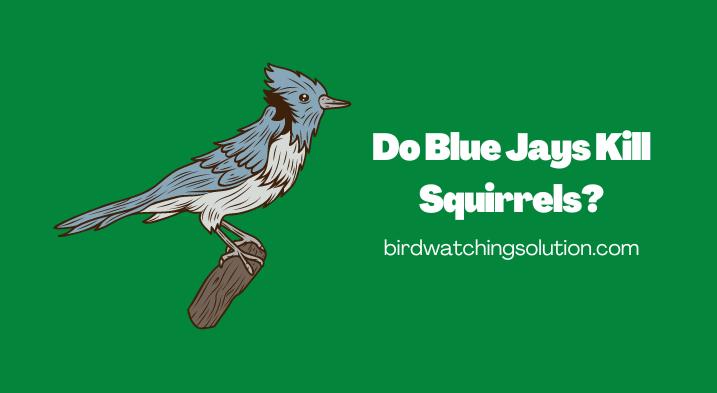
Do Blue Jays Kill Squirrels – Understanding Its Behaviour
The behavior of blue jays is a complex and fascinating topic, with many different aspects to explore.
These birds are known for their striking blue plumage and bold personalities, and they can be found throughout much of North America.
General Behavior:
Blue jays are highly intelligent and curious birds. They are known for their bold and aggressive behavior and are often observed interacting with other birds and animals.
They are also known to mimic the calls of other birds, including hawks, crows, and even squirrels.
Blue jays are social birds, and they can often be found in flocks. They are also known to be fiercely territorial and will defend their territory from other birds and animals.
Hunting Tactics:
Blue jays are opportunistic feeders, which means that they will take advantage of whatever food sources are available to them.
They are known to feed on a wide variety of prey, including insects, fruits, seeds, and even small animals like squirrels.
Blue jays are skilled hunters, and they use a variety of tactics to catch their prey.
They may use their sharp beak to pluck insects off of foliage, or they may use their strong feet to dig for seeds.
They may also use their sharp claws to catch small animals like squirrels.
Types of Prey:
Blue jays are known to eat a wide variety of prey, including insects, fruits, seeds, and even small animals like squirrels.
Studies have shown that the majority of their diet consists of acorns, fruits, and insects.
They are also known to eat smaller birds, eggs, and nestlings, as well as small reptiles, amphibians, and mammals.
Blue jays are opportunistic feeders, and they will take advantage of whatever food sources are available to them.
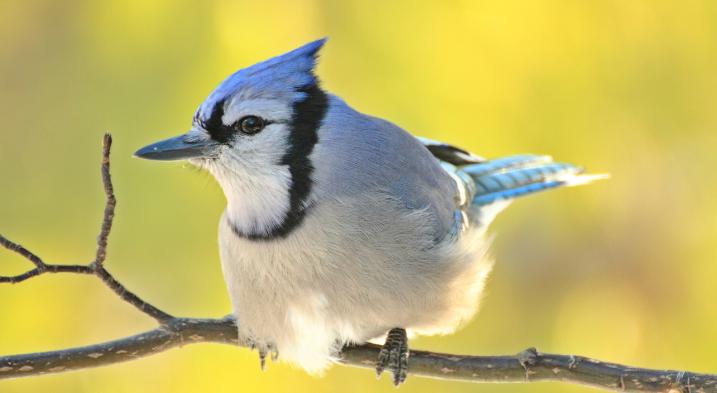
Blue Jays And Squirrels
Blue jays and squirrels are two common species found in North America, and they often share the same habitats.
Understanding the interactions between these two animals is important for understanding the dynamics of the ecosystem.
Potential Interactions:
Blue jays and squirrels may interact in various ways. Blue jays may prey on young squirrels or their eggs, while squirrels may raid blue jay nests and eat their eggs or nestlings.
Blue jays may also compete with squirrels for food resources.
Blue jays are known to be opportunistic feeders and will take advantage of whatever food sources are available to them, and this may include acorns, fruits, and seeds that squirrels also depend on for survival.
Observed Instances of Blue Jays Killing Squirrels:
Although blue jays are known to be opportunistic feeders, instances of blue jays killing squirrels are relatively rare.
There have been some reports of blue jays preying on young or injured squirrels, but these instances are not well-documented.
Some ornithologists believe that blue jays may kill squirrels as a last resort when other food sources are scarce.
Scientific Studies About Their Co-existence:
There have been several scientific studies conducted on the topic of blue jays and squirrels.
A study conducted by the University of Minnesota found that blue jays primarily prey on insects, fruits, and seeds and that predation on squirrels is not a common occurrence.
Other studies have also found that while blue jays may compete with squirrels for food resources, they are not a significant threat to squirrel populations.
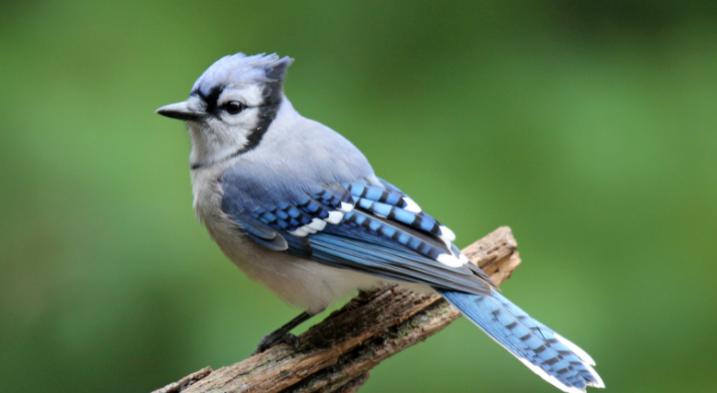
The Impact Of Blue Jays On Squirrel Populations
The impact of blue jays on squirrel populations is a topic of ongoing research and debate among scientists.
Understanding the potential impact of bluejays on squirrel populations is important for understanding the dynamics of the ecosystem.
Potential Impact on Squirrel Populations:
The potential impact of blue jays on squirrel populations is not well-understood.
While blue jays may prey on young or injured squirrels, instances of predation are relatively rare and not well-documented.
Studies have shown that blue jays primarily prey on insects, fruits, and seeds and that predation on squirrels is not a common occurrence.
Some ornithologists believe that blue jays may kill squirrels as a last resort when other food sources are scarce.
Conservation Concerns:
There are not many conservation concerns related to bluejays and squirrels.
However, it’s important to note that any species that preys on another species can have an impact on that species’ population.
Given that blue jays are not known to be a significant threat to squirrel populations, there are no specific conservation concerns related to blue jays and squirrels.
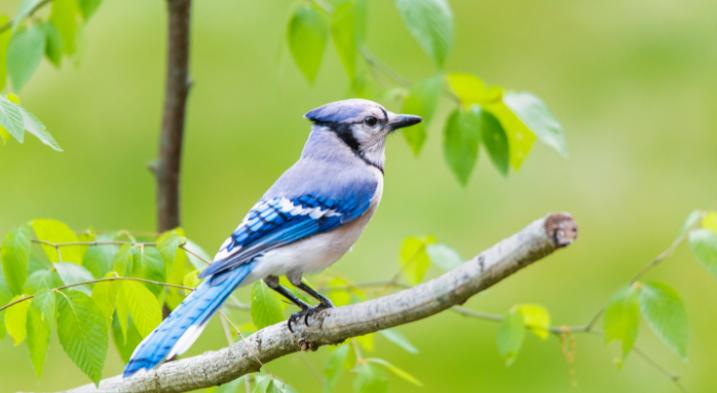
Last Minute Thoughts!
In conclusion, blue jays are fascinating birds with complex behavior and hunting tactics. Their interactions with squirrels, another common species found in North America, have been a topic of research and debate among scientists.
The behavior of blue jays includes being highly intelligent, curious, bold, aggressive, social, and territorial.
Blue jays are opportunistic feeders, known to feed on a wide variety of prey including insects, fruits, seeds, and even small animals like squirrels.
They use a variety of tactics to catch their prey and have been observed eating a wide variety of prey.
The impact of blue jays on squirrel populations is not well-understood.
Predation on squirrels is not common among blue jays, as they primarily eat insects, fruits, and seeds.
Blue jays and squirrels do not pose many conservation concerns since blue jays do not pose a significant threat to squirrels.
To better understand the impact of blue jays on squirrel populations, further research is needed.
Researchers can gain valuable insight into the dynamics between these two species, as well as the potential impact of blue jays on squirrels, by studying specific regions or habitats.
Understanding the interactions between bluejays and squirrels is important for understanding the dynamics of the ecosystem and making informed conservation decisions.

